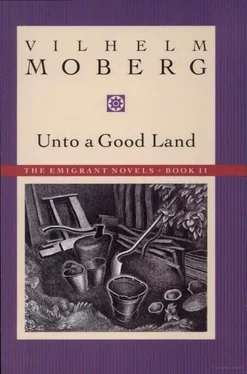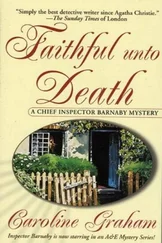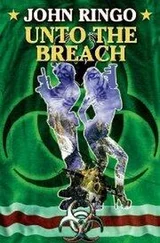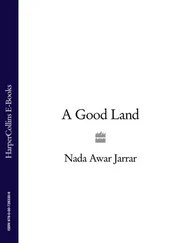Ulrika suffered hunger, and any one able to give her food but withholding it increased her suffering. Could Kristina be so cruel as to let another human being suffer when she could help her? She had many times asked herself why people plagued each other so mercilessly in this world; now she put the question to herself: Ulrika is hungry — why do you let her suffer? You say she is proud — what are you? Is it not from haughtiness that you pass her by?
Kristina’s hand took a firmer hold of the knife handle — but this was the children’s bread. They were weak and needed every bite. She thought, you cannot take it away from them! To cut that bread is like cutting your own flesh. The Glad One is big and strong, vulgar and forward, she will always manage, she’ll never starve to death. It’s different with your helpless little ones. If there were plenty of food, more than they needed, then. . Now — never!
But it couldn’t go on like this. They couldn’t continue to hurt each other. They were all of them poor wretched creatures, lost in the New World; no one knew what awaited them in this new country, no one knew what they might have to suffer. One loaf would save no one’s life in the long run. And if one could help another. . Help thy neighbor! The Glad One too was her neighbor; she too had been given an immortal soul by her Creator. He had from the beginning considered her as worthy as others; she too was made by God, Who must care for her as for others. Kristina felt He would see to the little children also, so they needn’t starve. .
She took out the last loaf, cut generous slices, and handed them to Ulrika of Västergöhl and her daughter: Wouldn’t they please share her bread? It was old and dry, but she had scraped off the mildew as best she could. .
Mother and daughter accepted gratefully. “Thank you very much,” Ulrika said, and this sounded strange when all she got was hard, old bread. Nor did Ulrika seem surprised at the offer; she only looked grateful, truly grateful. And Kristina also handed them the knife and the smoked leg of lamb that they might cut themselves meat for the bread. They both chewed slowly, with restraint, but it was apparent they did so with effort, trying not to reveal their ravenous hunger.
Kristina herself began to eat and she wondered: What would the people at home think of this? What would they say, if they could see her cut her last loaf from home in order to share with Ulrika of Västergöhl, the parish whore?
— 8—
In the evening the twilight was short, and soon it was dark as a potato cellar outside the windows of their railroad wagon. Everything went faster in this country, even the twilight passed more quickly than at home. And the thick darkness which now fell over them on a night so near Midsummer surprised the travelers. At this hour it would still be full daylight at home. But it seemed as if everything American was opposite to Swedish: here they had dark summer nights instead of light, white cows instead of black.
Their train stopped and remained standing a long time. At least an hour passed, and still they did not move. They could no longer see the landscape outside the windows; perhaps this was one of the towns where the interpreter had said the train stopped for a long rest: Schenectady, Utica, or Syracuse. Those were difficult and unusual names for towns, almost like Biblical names, towns in Canaan. Then some of the company with good eyes reported that they were in the middle of a wild forest — there were huge, thick tree trunks on either side. Their guide had gone to another wagon, and they had no one to ask.
Perhaps the train couldn’t go on during the night when it was so dark; perhaps they had to stay here until daybreak.
No light was lit inside the wagon, and the passengers couldn’t see each other’s faces, but they sat close to one another and each knew where his own family and his belongings were. They were not in need of light and they were thankful to have air; those in charge of the train had opened the doors at both ends of their wagon as soon as it stopped; the cool night air refreshed them. But none of the travelers dared step outside.
One more hour passed, and the immigrant train still stood there. They began to grow restless, they wondered and worried. Outside the windows they could see sparks from the steam wagon, whirling about in the dark like a swarm of fireflies, and this increased their anxiety. They began to fear that some accident had befallen their vehicle, or was about to happen. Why hadn’t their guide returned? Someone suggested that perhaps Landberg had deserted them.
They could hear the wheezing and hissing from the steam wagon in front, and they saw the flying sparks; they were in the depths of a dark forest, and here they sat clustered together, blind, like chickens perched in darkness, and could not even ask anyone if they were in danger. They knew nothing, therefore they feared everything.
At last they began to confer with each other: shouldn’t they elect someone to step out onto the ground and try to discover what was the matter with their unmoving train? Even if he couldn’t talk, he might learn something with his ears and eyes.
They were talking this over when the doors suddenly slammed shut, and the train started up with such a jerk that the passengers tumbled against each other. And suddenly the man they had missed stood among them; Long Landberg had returned, friendly and calm, and he explained: There was a steep, difficult hill ahead of them on the railroad, and one more steam wagon was required to pull them uphill. Their train had been waiting for the extra steam wagon, and now it was added to the back of their train, and would help push the wagons up the steep hill.
So their journey continued; the immigrant train pushed on through the night, seeking its way into North America. As yet nothing dangerous had developed, but anything could happen, they did not even know what to fear.
VII. VOYAGE ON THE LAKE STEAMER
— 1—
In the forenoon of the next day the immigrants arrived at Buffalo. That evening they started across Lake Erie on the steamer Sultana. The whole remaining part of their journey was to be on water — across lakes, up rivers, and through canals. Just ahead of them lay three great lakes over which they must pass. They had embarked on a vast, restless, inland water, but on this voyage they at least could see land on one side of the ship. At intervals, the Sultana touched shore to discharge or take aboard passengers, cargo, and firewood for her engines.
The Sultana was a fairly large steamer with one water wheel on either side; she was overloaded with people and cargo. The immigrants were given quarters below, on the middle deck, and when they were sent to their quarters, they learned another English word, steerage. Cabins were built in three rows in the hold, each one four feet wide, and each one accommodating two full-grown persons of the same sex, or a married couple. Two children under eight years of age were counted as one grown person; children under three years of age were transported free of charge, but no one asked the little ones’ ages, and all children carried aboard by the parents were allowed free passage, however old they were.
Kristina took charge of Harald while Karl Oskar carried Johan on one arm and Lill-Märta on the other. Johan was four, but tall as a six-year-old. Other parents carried children even larger, never before had such big two-year-old babies been seen. But it seemed as if all Americans loved children: they brightened and smiled as soon as a child came near them, and no one spoke harshly when the youngsters were noisy or caused trouble; children were the most welcome of all immigrants, it seemed.
Читать дальше










